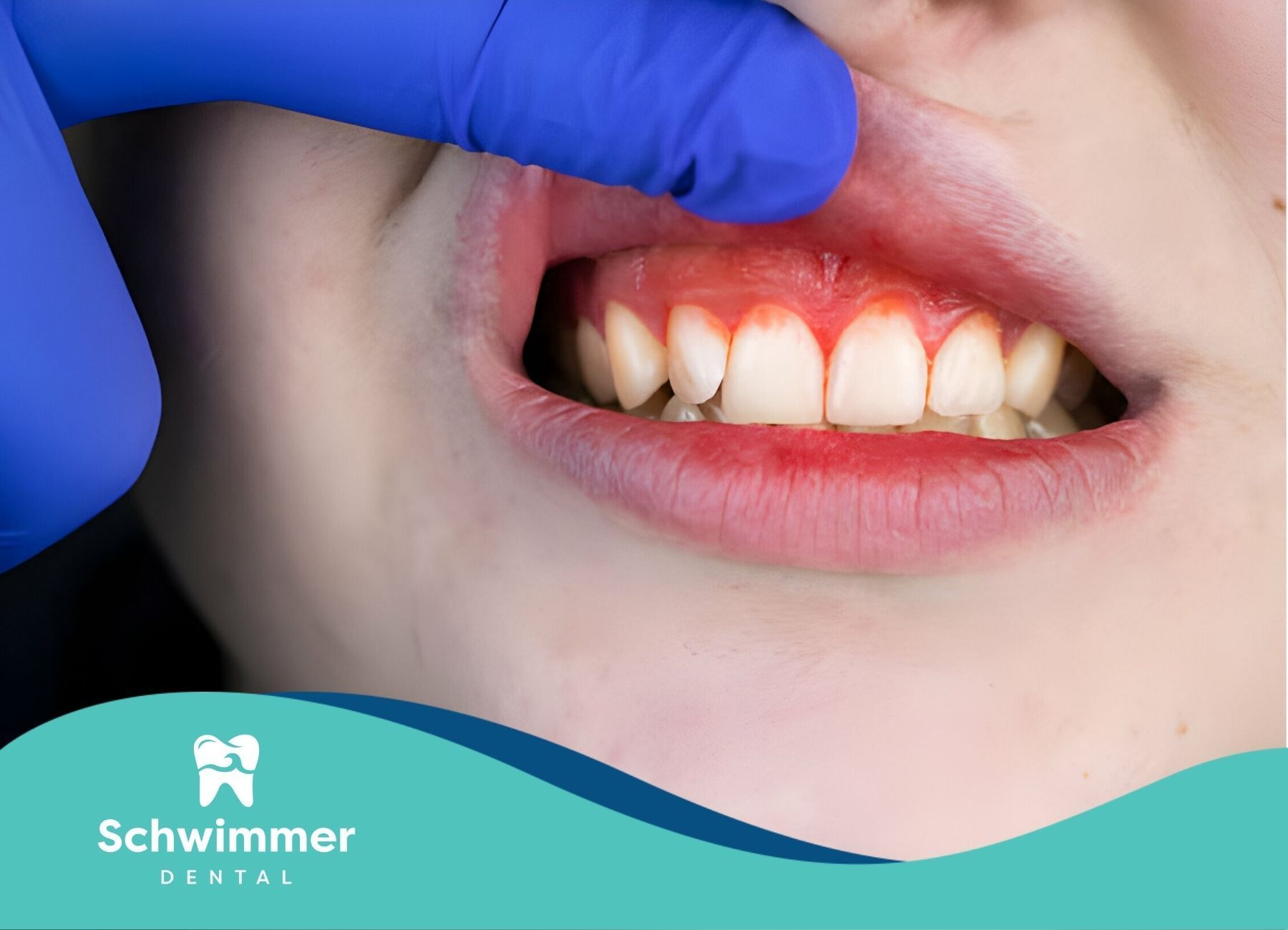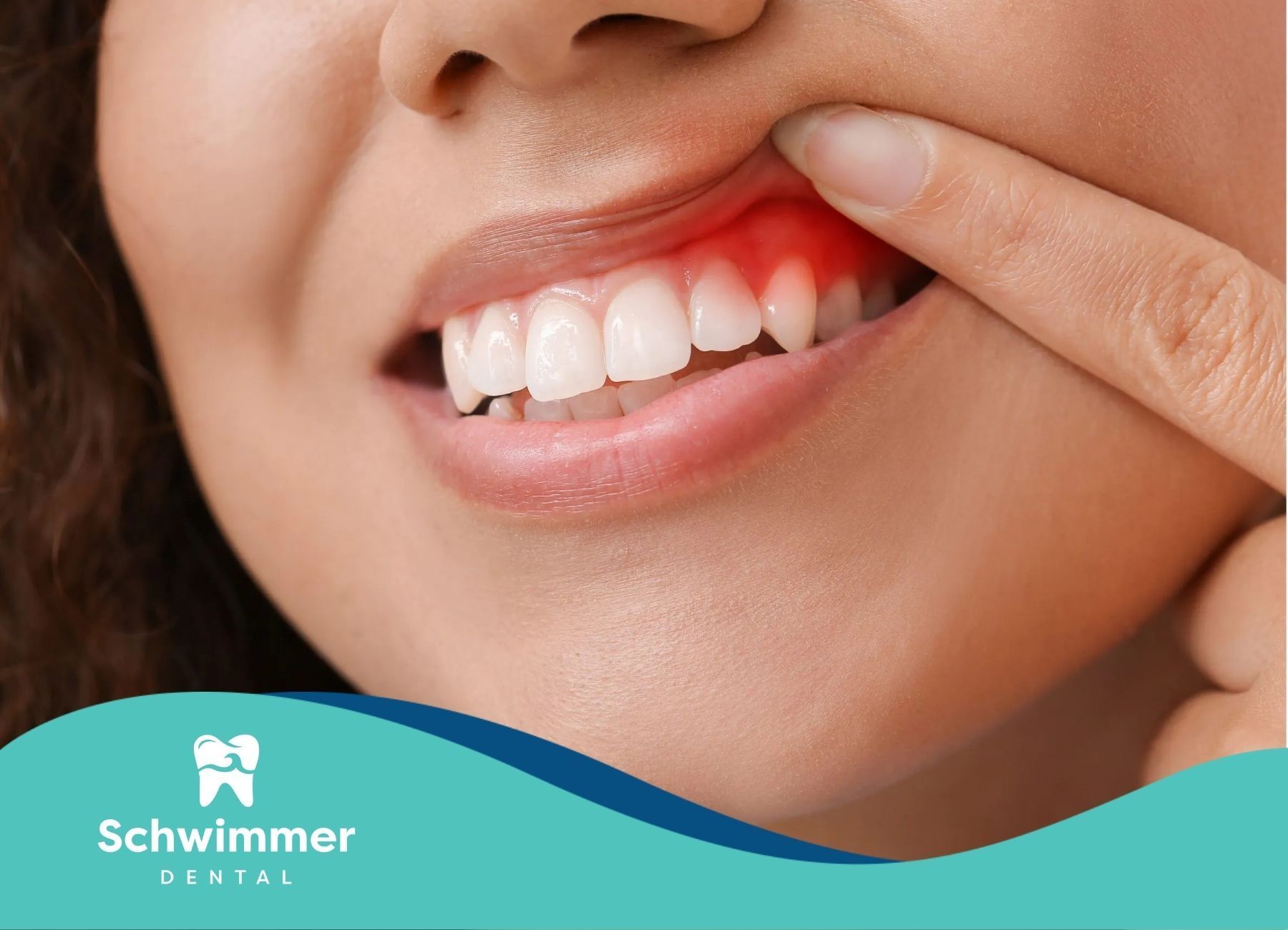Understanding Why Do Teeth Shift and How to Stop It
Have you noticed changes in how your teeth bite together or line up? Why do teeth shift? Many people worry about teeth shifting, which can happen at any age, even after getting braces. Knowing what causes teeth shifting is important to keep your mouth healthy. This guide will talk about what causes teeth to shift, how to spot the signs, and what you can do to stop or fix the problem.
Why Do Teeth Shift?
Our teeth might seem like they are firmly in place, but they actually move a little all the time. This movement can happen for different reasons. Factors include natural aging, some habits, and even dental procedures.
These changes usually happen slowly, and you might not notice them until noticeable gaps appear between your teeth or your bite changes. Knowing what causes these shifts is the first step to understanding and handling this common dental issue.
Age-Related Changes Impacting Your Smile
As we grow older, our bodies and mouths change too. The aging process affects the position of your teeth and causes them to shift a little over time.
One major reason is that the jawbone keeps growing. It pushes forward and gets narrower as we age. This growth can crowd the bottom teeth and change the alignment of the upper teeth. It might even affect how your bite comes together.
In addition, the ligaments, tissues, and fibers that support our jaw become weaker with age, impacting our aging facial features. This makes teeth more likely to loosen and shift. Plus, as we age, bone density decreases. This creates a situation where tooth movement is more likely.
The Role of Gum Disease in Teeth Movement
Gum disease, or periodontitis, is also called periodontal disease. It is an important issue for your oral health. This problem harms your gums and can lead to teeth shifting. If not treated, gum disease can hurt the gum tissue and the jawbone. These parts are very important because they keep your teeth in place.
As the support around your teeth gets weaker, your teeth may loosen and move out of place. This can make gum disease worse. It can create pockets where bacteria grow and increase the infection.
Good gum health is very important to avoid tooth movement. You should brush your teeth regularly, floss, and go for dental checkups. This helps find any signs of gum disease early on so you can treat it.
Teeth grinding
Teeth grinding is also called bruxism. It is a common habit that many people have. This habit involves clenching your jaw and grinding your teeth, which can lead to excessive tooth wear, mostly without even realizing it while you sleep. The causes of bruxism can be different. Still, stress, anxiety, and misaligned teeth often play a role.
Grinding your teeth puts too much pressure on your teeth and jaw muscles. This can lead to dental issues, like teeth shifting out of place. Over time, the grinding can make your teeth wear down, become loose, and lose their alignment.
If you think you might grind your teeth, speak with your dentist. They can check for signs of bruxism. Your dentist can also suggest ways to manage this habit, including continuous positive airway pressure (CPAP) therapy when applicable. For example, wearing a custom-made night guard can help protect your teeth while you sleep.
Dental Procedures and Tooth Loss
Certain dental procedures can cause teeth shifting, especially after losing a tooth. When a tooth is taken out or lost because of an injury or decay, the nearby teeth tend to move into the empty space left by the extraction. This can mess up how your bite aligns and lead to more shifting.
Dental implants are the best choice for replacing missing teeth. They stop the adjacent teeth from moving. Implants act as artificial roots and help keep the jawbone healthy. This is important because it prevents bone loss and keeps your teeth stable.
If dental implants aren't an option, other choices like bridges can fill the gap. This can also lower the chances of major shifting.
Identifying the Signs of Shifting Teeth
Noticing the early signs of teeth shifting is important for getting help quickly and avoiding more problems later. Small changes may be hard to see, but paying attention to what's happening in your mouth can help you spot issues.
Seeing new gaps or changes in how your bite feels is key. Knowing these signs gives you the chance to take action and keep your smile healthy and straight.
When Gaps Start to Appear
One clear sign that your teeth are shifting is the appearance of gaps or spaces between them. These gaps can happen for different reasons. Often, teeth move naturally to fill the space left by a missing tooth. They can also be caused by gum disease.
When you lose a tooth or have one taken out, your surrounding teeth might tilt or drift into that empty space. This creates gaps in your smile. This movement can change how your teeth look and affect how you bite and chew.
If you see new gaps between your teeth, seeing your dentist is important. A consultation can help determine why your teeth are shifting. The dentist can then suggest treatment options to help.
Recognizing Changes in Your Bite
Changes in how your upper and lower teeth fit together are called malocclusion or bite misalignment, which can result in crooked teeth. This is a sign that your teeth are shifting. You might notice this in different ways. It can be hard to bite or chew some foods. You may feel your teeth hitting each other at strange angles or have discomfort in your jaw.
When teeth shift due to CPAP therapy, it can affect your bite alignment. This means the force when you chew is not balanced. You might feel pain or discomfort, and your jaw might click. Some people might even suffer from headaches or earaches.
If you notice sudden changes in your bite, like trouble closing your mouth comfortably or seeing that your teeth do not meet as before, it’s important to get dental help right away.
How Do I Stop My Teeth from Shifting?
Some movement of your teeth is normal, but there are ways to help keep your smile straight and healthy. It is important to break habits that cause shifting, like grinding your teeth. Also, good oral hygiene is key to keeping your smile.
To ensure your teeth stay in place, listen to your dentist's advice. This includes using a retainer after your orthodontic treatment, wearing a mouthguard during contact sports, and having regular check-ups. These steps are important for your long-term dental health.
Retainers for Teeth Shifting
Orthodontic retainers are very important for keeping the results of orthodontic treatment. They stop your teeth from moving back to where they were before. It's crucial to follow your orthodontist's instructions about how wearing your retainer is the best way to ensure long-lasting results.
Retainers are custom-made devices that keep your teeth in their new, correct position after braces or clear aligners. They can be made of plastic or wire, and some are removable while others are fixed.
When you wear your retainer as directed—whether it's all the time for a while or just at night for long-term care—you help the tissues around your teeth and airways adjust to their new spots. This reduces the chance of your teeth shifting significantly.
Embracing Good Oral Hygiene Practices
Maintaining good oral hygiene is key to preventing dental issues like teeth shifting. Having a regular care routine helps manage harmful bacteria in your mouth. This bacteria can cause gum disease and weaken the support for your teeth.
You should brush your teeth at least twice a day. Use fluoride toothpaste for the best results in removing stains. Flossing every day is also important. It helps remove plaque and bits of food between your teeth and along the gum line.
Also, using an antibacterial mouthwash can help reduce bacteria and improve dental health. Healthy gums and strong supporting tissues are vital. They help keep your teeth in place.
The Importance of Regular Dental Check-Ups
Regular dental check-ups are very important. They help keep your oral health in good shape. They also help find any signs of dental problems early, such as tooth shifting. By visiting your dentist every six months, you get professional cleanings and check-ups each time. This allows for early intervention.
During your visit, your dentist will look closely at your teeth and gums. They will check for any signs of shifting, gum disease, or other issues related to tooth movement. It’s a good idea for them to discover potential problems when they first appear, as early treatment is usually easier.
Teeth shifting can happen due to various factors like aging, gum health, or missing teeth. Addressing these changes early with expert care is essential. It can stop small dental issues from turning into bigger ones. If you're looking for orthodontists near me, schedule a consultation today to explore effective solutions for keeping your smile aligned and healthy!
Conclusion
Understanding why teeth move is important for keeping a healthy smile. Things like age, gum disease, grinding, and dental procedures can cause teeth to shift. It's vital to notice early signs of shifting teeth, like gaps or changes in how your bite feels. To avoid more shifting, think about using retainers, keeping up with good dental hygiene and oral hygiene, and visiting the dentist regularly. By taking these steps, you can keep your dental alignment and oral health in good shape. Remember, your smile is worth taking care of.
At Schwimmer Dental, we understand that teeth shifting can be both a cosmetic concern and a dental health issue. As the best dental provider clinic in New Jersey, we offer personalized care to identify the causes of teeth movement and provide tailored solutions, from retainers to advanced orthodontic options. Take control of your smile today—schedule a consultation with our expert team and discover how easy it is to keep your teeth perfectly aligned!



